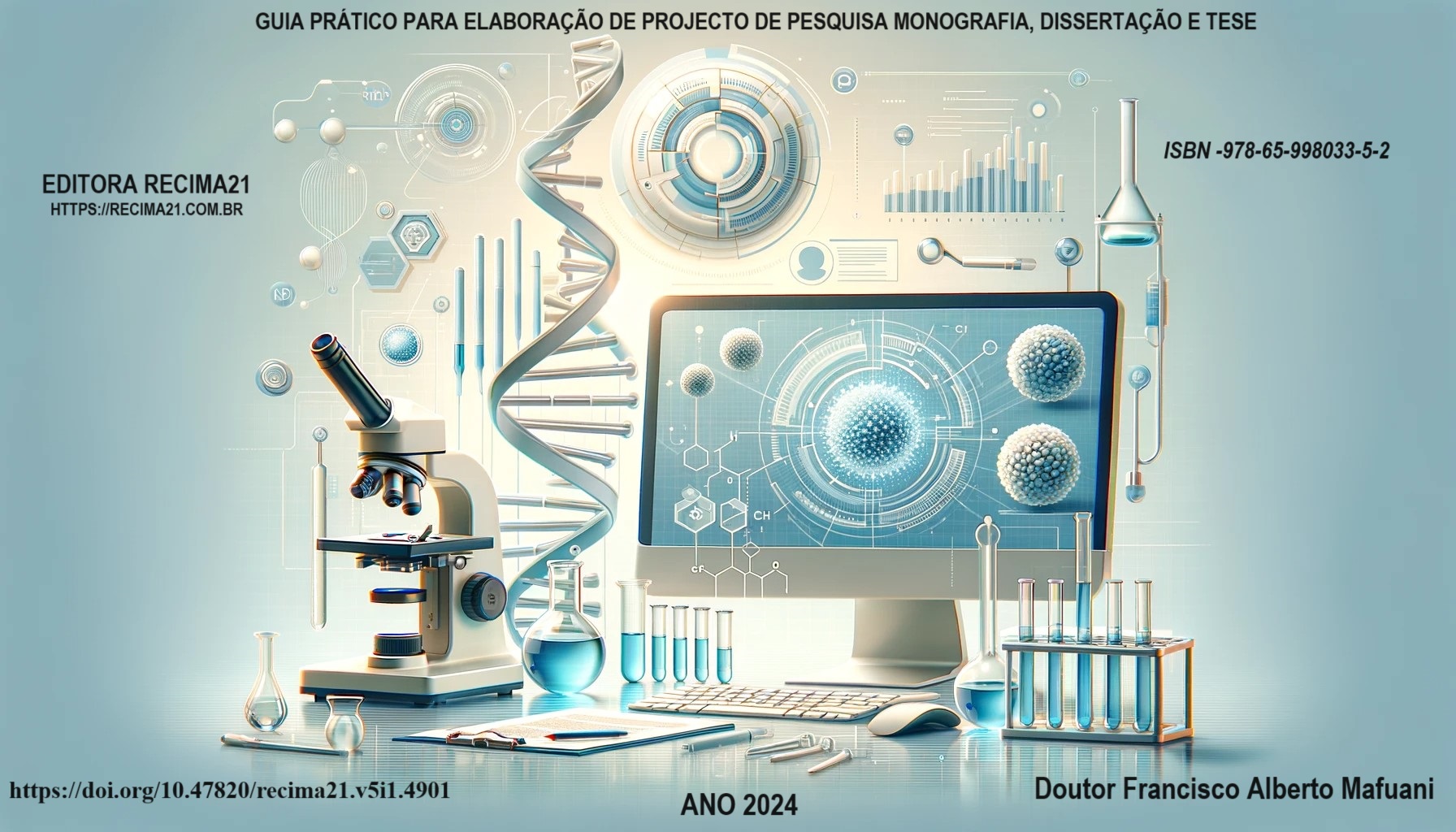PRACTICAL GUIDE FOR THE ELABORATION OF A RESEARCH PROJECT MONOGRAPH, DISSERTATION AND THESIS
DOI:
https://doi.org/10.47820/recima21.v5i1.4901Keywords:
Monograph, Thesis, How-To GuideAbstract
Higher education, as it has been historically consolidated in the Western tradition, aims to achieve three objectives that are obviously articulated with each other: the first objective is the training of professionals in the different applied areas, through the teaching-learning process of technical skills and competences; the second objective is the training of the scientist through the provision of the methods and contents of knowledge of the various specialties of knowledge; and the third objective is the one, referring to the formation of the citizen, by stimulating the student to become aware of the meaning of his historical, personal and social existence. In this objective, it is important to lead the student to understand his insertion, not only in his concrete society, but also in the heart of humanity itself. It is about awakening in the student a social conscience, which is sought to be done through a series of pedagogical mediations present in the school curricula and in the educational interaction that is expected to occur in the university space-time. One of the biggest challenges for university students is the mastery of methodologies for the development of scientific work. In order for the research project to have scientific relevance, it is necessary that the student understands and becomes familiar with the structure of the work to be developed; For this, it is necessary for the student to leave his comfort zone and move through the paths of knowledge, making use of scientific instruments to achieve academic originality.
Downloads

Downloads
Published
How to Cite
License
Copyright (c) 2024 RECIMA21 - Revista Científica Multidisciplinar - ISSN 2675-6218

This work is licensed under a Creative Commons Attribution 4.0 International License.
Os direitos autorais dos artigos/resenhas/TCCs publicados pertecem à revista RECIMA21, e seguem o padrão Creative Commons (CC BY 4.0), permitindo a cópia ou reprodução, desde que cite a fonte e respeite os direitos dos autores e contenham menção aos mesmos nos créditos. Toda e qualquer obra publicada na revista, seu conteúdo é de responsabilidade dos autores, cabendo a RECIMA21 apenas ser o veículo de divulgação, seguindo os padrões nacionais e internacionais de publicação.












